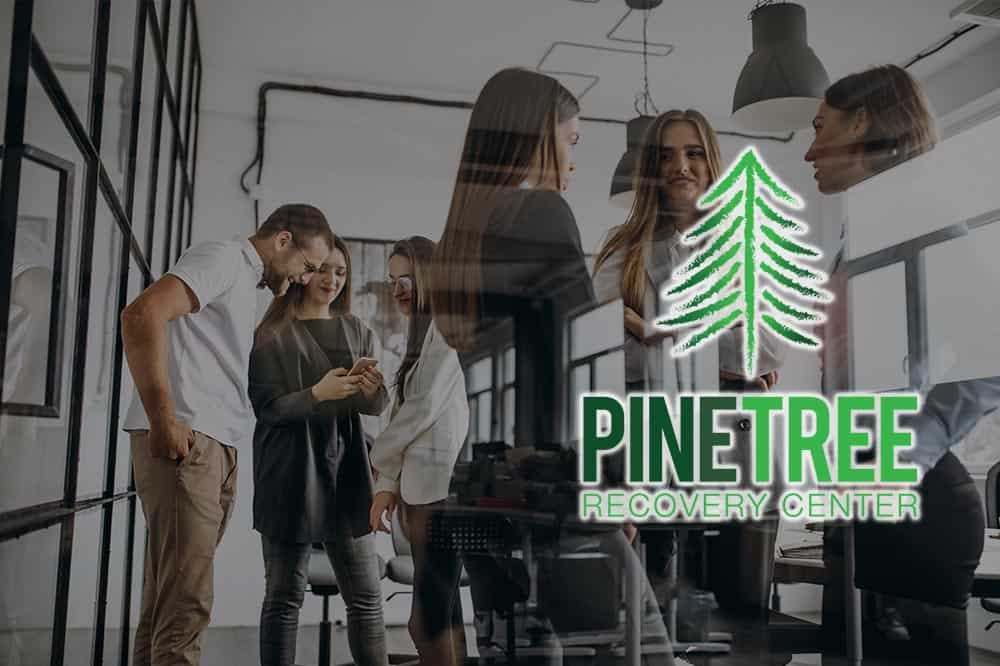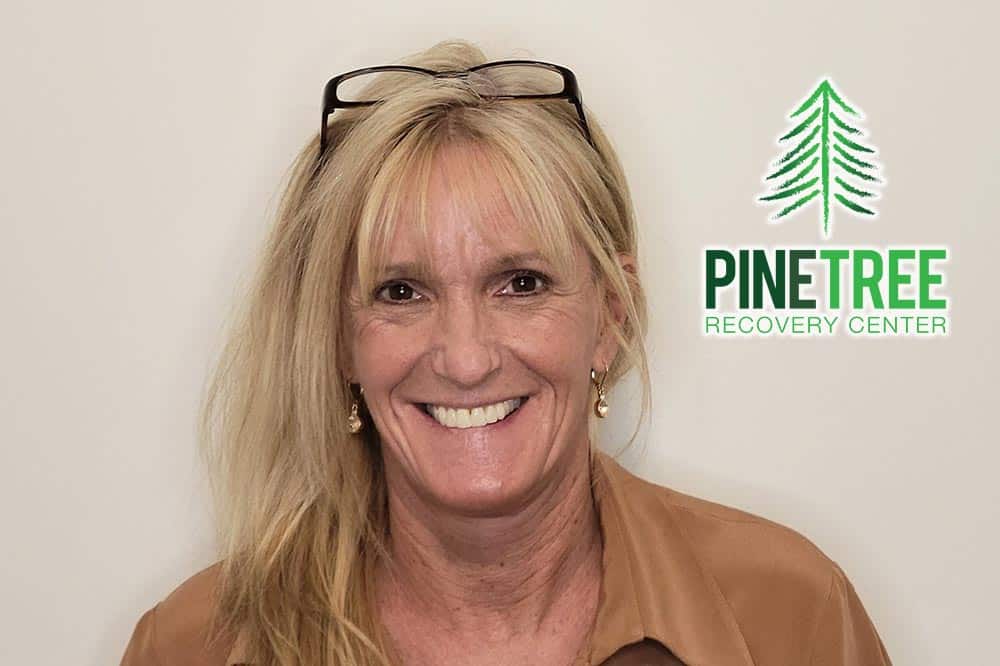Helping vs. Hurting
How to Stop Enabling Your Child’s Addiction
How to Stop Enabling Your Child’s Addiction
Watching your child struggle with addiction is an extremely painful experience. As a parent you innately want to protect and nurture your child, doing everything in your power to protect them no matter what they are going through. You are a built-in advocate and support system for your child. But what do you do when your child develops an addictive disorder? How can you possibly love your child from afar when they are clearly in pain and when they have been rendered incapable of taking care of themselves? You might feel inclined to continue offering support to your child, but enabling negative behavior patterns can be extremely detrimental and can hinder the recovery process. How do you know if you’re enabling your child in their addiction? If you do discover you’re enabling your child, what steps can you take to help?
At Pine Tree Recovery Center we understand how difficult it can be to set and maintain healthy boundaries. We work closely with the loved ones of our clients, walking them through every stage of the early recovery process and providing support. If you have an addicted child and you feel helpless, contact us. We can help you craft a plan for helping your child find recovery.
Signs You Are Enabling an Addiction
Examples of Enabling:
- Ignoring the problem – A problem isn’t going to resolve on its own just because you pretend it doesn’t exist. When it comes to breaking the pattern of enabling it helps to understand the disease model of addiction. The longer a substance abuse disorder goes untreated, the more severe the symptoms will become. The sooner your child enters treatment, the better; and brushing the issue under the rug will not encourage recovery.
- Covering up for your child – You might be inclined to protect your child from the consequences of their own actions. For example, if your child repeatedly skips class and is at risk of academic probation, you might want to call the school and do what you can to bail them out. If your child doesn’t experience the consequences of his or her substance abuse there will be no pressing reason to quit.
- Offering financial support – Even if you know the money you lend your child is going towards drugs and alcohol, you might fear that without financial assistance your child will end up hungry or homeless. If your child is constantly asking for money for rent, groceries, bills and gas, there is a good chance they are using a good amount of these “earnings” on their drug of choice.
- Putting your child’s needs before your own – While this is a clear sign of enabling it is also tricky, because as a parent you innately put your child’s needs before your own. Take a step back and take an honest look at your own mental, emotional and physical health. Are you neglecting activities that you previously enjoyed in order to care for your child? In order to help your child, you need to be the healthiest you can be.
- Blaming others for your child’s actions – Someone who is enabling a child frequently blames other people, places and things for their child’s behavior. You might blame difficult classes or inflexible teachers for your child’s slipping grades and increased truancies. You might even blame yourself. It is important to understand that addiction can happen to anyone. If your child has been struggling with substance abuse it doesn’t mean you did anything wrong.
- Taking care of related consequences – If you constantly bail your child out of trouble and take on all their responsibilities there is a good chance you are enabling. It can be difficult to let your child take the fall but it is important that they experience the consequences of their own actions so they have motivation to make necessary changes.
- Failing to maintain personal boundaries – It is not uncommon for people who engage in enabling behaviors to set personal boundaries, though there is a slim chance these boundaries are going to be maintained when push comes to shove. For example, you might tell your child that if you catch them using drugs in your home one more time they will have to find somewhere else to stay. Sticking to your guns is not easy, but it is important when it comes to promoting a shift towards recovery.
Our Drug & Alcohol Detox Services Include
How to Stop Enabling
Enabling your child can easily turn into a vicious cycle, but this cycle can be stopped at any time when you have the right tools in place. At Pine Tree Recovery Center many of our staff members have helped a loved one through the recovery process, allowing us a unique, compassionate perspective.

We know how difficult it can be to set and uphold boundaries when you are fearing for the well-being of someone who seems to be in a hopeless situation.
Ways you can help your addicted child without enabling them:
- Seek help for yourself.
- Join a support group for the parents of addicts such as Al-Anon
- Seek the advice of a licensed therapist with a background in addiction.
- Provide your child with a list of recovery resources.
- If your child is serious about seeking treatment, help them get where they need to go.
- Stage an intervention if necessary.
- Keep conversations focused on treatment.
Ready To Begin Your Drug & Alcohol Detox?
We Offer A Safe & Effective Program
Don’t let Drug & Alcohol addiction control your life.
Call us today and let’s get you started on the path to a better you.
The Rock Bottom Myth
You have probably heard people talk about the importance of letting a loved one hit rock bottom. Rock bottom is the phrase used to describe the experience an addict or alcoholic has before becoming willing to seek professional help. Rock bottom looks different for different people. Some people might get into serious legal trouble and finally get sober in jail, others might finally get sober after losing a relationship. While consequences are an important motivator in getting an individual to seek sobriety, at Pine Tree Recovery Center we believe a person doesn’t need to go all the way to the bottom to find recovery. We believe that treatment doesn’t need to be entirely desired in order to be effective. If someone starts abusing drugs at a young age there is a good chance that irreversible damage will be done to cognitive functioning, and because addiction is a progressive disease the symptoms will only get more severe over time. There is nothing wrong with intervening, but intervention should only happen under the guidance of an experienced professional. We offer crisis intervention services and are happy to put you in touch with a licensed interventionist in your area.
Begin Healing Now!
Have A Call With One Of Our Treatment Advisors
Don’t Suffer Any Longer
Family-Informed Care
At Pine Tree Recovery Center we believe in providing each member of their family with the tools they need to heal. Addiction affects every member of the family individually and devastates the family dynamic as a whole. We offer family therapy that focuses on restoring mental and emotional health and returning the family unit to a healthy state of functioning. If your child has been struggling with addiction, it is important to fully understand what steps to take to prevent a relapse and make your home as safe and supportive as possible. The transition from residential inpatient treatment back home can be a vulnerable time for young adults who are new to sobriety. In order to ensure that there are no slips it is important that the client returns to a stable home. We provide the parents of our clients with healthy coping mechanisms and teach them the importance of self-care, boundary setting and avoiding enabling behaviors moving forward.
Begin Healing
When you or your loved one is ready to ask for help, Pine Tree Recovery Center will be here. Our admissions process is simple and straightforward and can be completed in as little as 15 minutes. We will provide a complimentary addiction assessment and a free, no obligation insurance benefit check during our initial phone call. Once your loved one is ready to take the next step we will help coordinate local travel to our facility. All you or your loved one has to do is contact us and ask for help, and we will take care of the rest.

Reviewed for accuracy by:
Randi Bruneau
LCSW, LADC, CCS
Randi is a Licensed Clinical Social Worker and Licensed Alcohol and Drug Counselor and Supervisor who has over 20 years of experience in the field of mental health and addictions. She has worked in both clinical and administrative leadership roles and also has extensive career experience in gender specific trauma treatment, crisis intervention, structural family work and substance use disorder treatment and supervision.






















